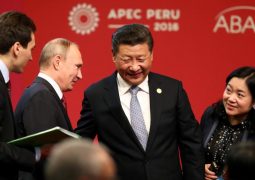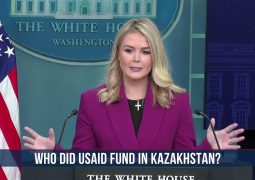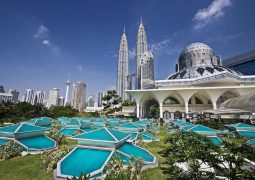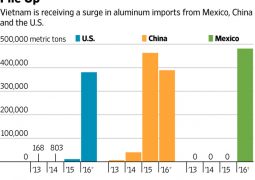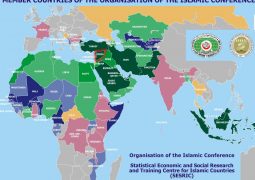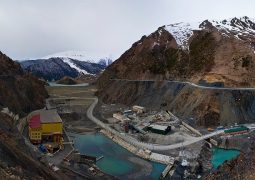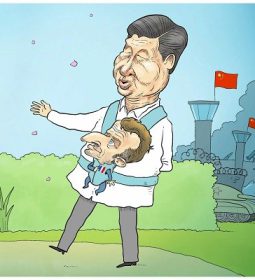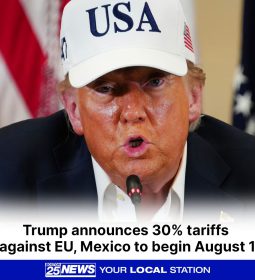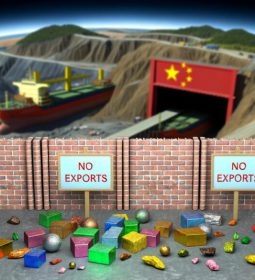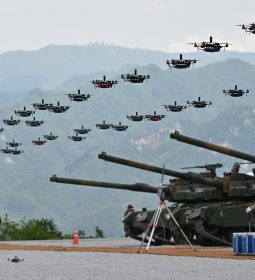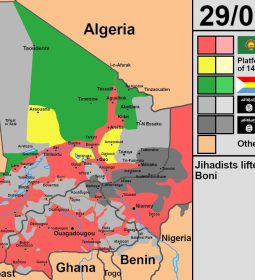TEFLON THAILAND’S ECONOMY GETS A BOOST AS CHINESE TOURISTS RETURN As junta generals mark third year in power, agriculture and tourism fuel biggest quarterly growth rate in four years
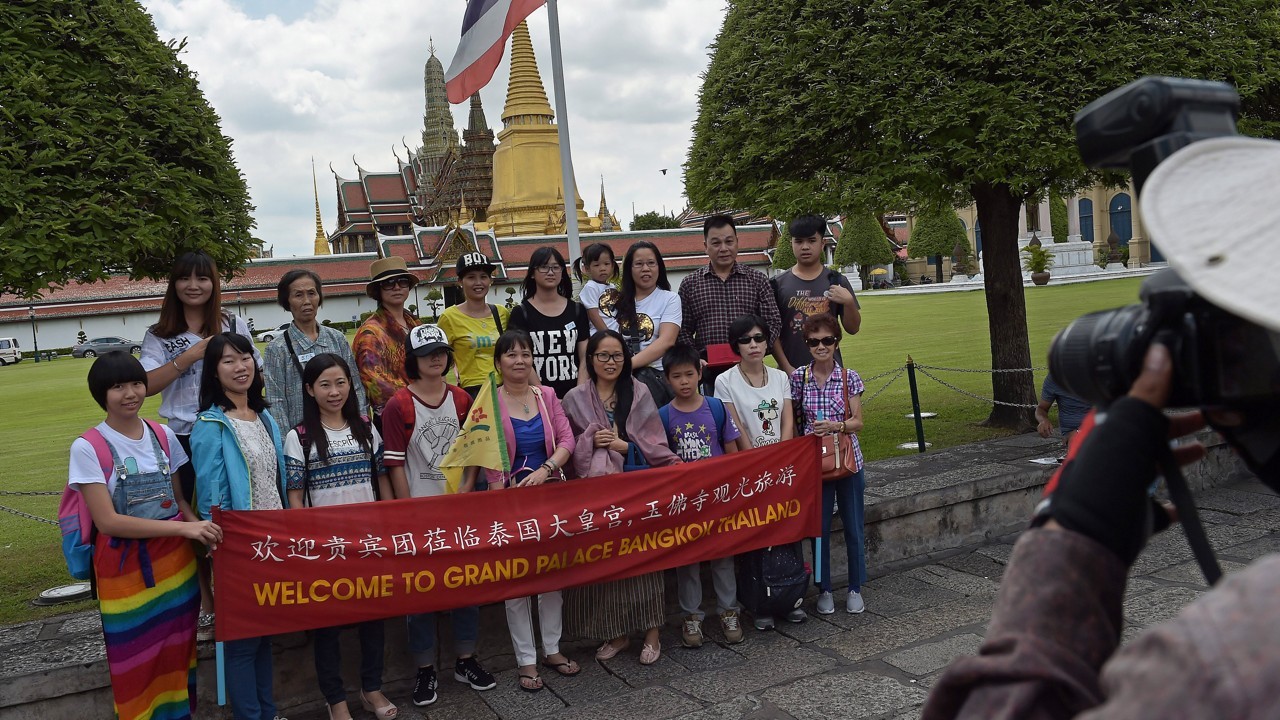
Thailand’s 2014 military coup – its second putsch in a decade – led to predictions that autocratic junta rule would see Southeast Asia’s second-largest economy become the region’s new “sick man”, just as traditional laggards from Myanmar to the Philippines were stirring from long slumbers.
But as the ruling ex-generals mark their third year in power on Monday, the Thai economy is showing just why the moniker “Teflon Thailand” – referencing its resilience to constant political shocks – is more apt.
Official figures released last week showed the economy grew 3.3 per cent in the three months to March from a year ago, the highest quarterly growth rate in four years. The IMF said in March that the economy, which has lagged regional peers since the coup, “is expected to advance at a moderate pace in the near to medium term”. The latest figures, observers say, suggest the country will enter an expected election season in 2018 with an uptick in optimism about its economic future. The junta, led by Prime Minister Prayuth Chan-ocha, is expected to hold polls soon after the year-long mourning period for King Bhumibol Adulyadej ends in October.
Thailand backs down on Facebook ban threat after site ‘cooperates’ over royal posts
Prime Minister Prayuth Chan-ocha is expected to call an election soon after the mourning period for the late king ends. Photo: Reuters
The former army chief took power in a bloodless coup on May 22, 2014, after months of protests against the civilian prime minister Yingluck Shinawatra. Yingluck is the sister of the former populist premier Thaksin Shinawatra, who was deposed in a coup in 2006. The military has staged 12 coups since the end of absolute monarchy in 1932.
“It is understandable that some are still not convinced about the outlook for the Thai economy, particularly the long-term outlook past next year’s general election,” said Tim Leelahaphan, a Bangkok-based economist with Maybank Kim Eng Securities. But “the medium-term outlook is not bad in our view,” he said. “Investment sentiment should be supported by the political calendar being much clearer as politics is a very important factor driving Thailand’s growth and markets.”
At least 40 wounded after car bomb hits Thailand’s troubled south
And Song Seng Wun, a Singapore-based regional economist at CIMB Bank, said the latest growth figures were an indication that the “Thai economy is stabilising as the generals overcome the initial difficulties they faced with macro planning and handling public spending.”
The first-quarter growth rate was underpinned by an expansion in the agricultural sector for the third straight period. Improving economic conditions in the key export markets of the United States, the European Union, China, Cambodia, Myanmar and Laos saw the sector grow 7.7 per cent year on year after growing 3 per cent in the fourth quarter of 2016.
The year-long period of mourning for former king Bhumibol will end in October. Photo: EPA
“This recovery has come hand in hand with an upturn in external demand that has added fuel to the recent growth recovery,” said Benjamin Shatil, an economist with JP Morgan.
Domestic car sales, a bellwether for consumer spending, meanwhile shot up 15 per cent year on year in April. Leelahaphan said the latest data showed “improving overall sentiment”. Retail sales were subdued during the initial months of the mourning period for Bhumibol, who died last October at the age of 88 after long illness.
Surge in Chinese tourists?
Other economic observers said a tourism surge would also help the economy ahead of the elections. Tourism accounts for some 12 per cent of GDP. The hotels and restaurants sector grew 5.3 per cent in the first quarter of the year, after a 4.9 per cent increase in the previous quarter. The government last week said it expected to see a 7.4 per cent jump in international tourist arrivals in 2017 to 35 million, owing to a pick-up in Chinese visitors. Despite the bouts of political turmoil, some involving bloody protests, total visitor arrivals have more than doubled from a base of 15.9 million in 2010. Chinese arrivals fell 7.5 per cent from a year earlier in the January to April period, to 3.19 million, after the government cracked down on super-cheap tour packages. But the government said it expected a rebound as Chinese travellers shun South Korea, a rival destination, owing to diplomatic friction between Seoul and Beijing.
Thailand cancels passport of fugitive Red Bull heir ‘Boss’ Yoovidhya
“There is nothing to worry about. We believe foreign tourists are coming back, especially Chinese tourists, which have shown signs of recovering,” Pongpanu Svetarundra, a senior tourism ministry official, told a news conference last week.
Other observers said medium-term growth would hinge on whether the junta’s plans to jump-start the economy with US$40 billion worth of infrastructure projects would see lift-off. Several big-ticket projects have been delayed due to issues with costs, including a railway linking Bangkok with southwest China. Thai officials said last week the first phase of the project would start later this year. Construction on the joint project with China was initially slated to begin last December.
“These infrastructure projects and their multiplier effects, along with prolonged political stability, will be important for continued growth in the medium term,” Song said. ■
- Previous WHAT’S CAUSING MALAYSIA’S ETHNIC CHINESE BRAIN DRAIN? Almost half of Chinese have reported a strong desire to leave the country
- Next What is known about suspected Manchester attacker Abedi



